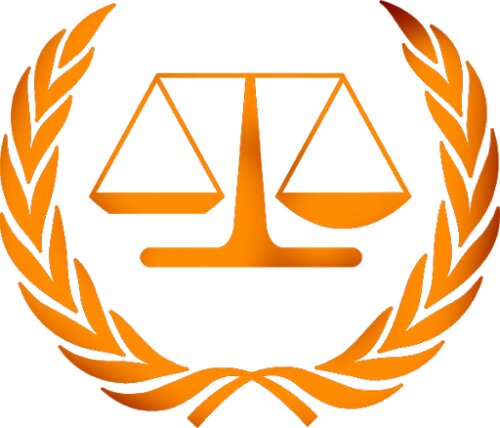ทนายความ พลังงานทดแทนและพลังงานทางเลือก ที่ดีที่สุดใน ลาดกระบัง
แบ่งปันความต้องการของคุณกับเรา รับการติดต่อจากสำนักงานกฎหมาย
ฟรี ใช้เวลา 2 นาที
รายชื่อทนายความที่ดีที่สุดใน ลาดกระบัง, ประเทศไทย
1. เกี่ยวกับกฎหมายพลังงานทดแทนและพลังงานทางเลือกในลาดกระบัง, ประเทศไทย
ลาดกระบังเป็นเขตหนึ่งในกรุงเทพมหานครที่อยู่ภายใต้กรอบกฎหมายพลังงานทดแทนของประเทศไทย ทั้งระดับชาติและข้อบังคับท้องถิ่นมีผลบังคับใช้ร่วมกัน เพื่อให้โครงการพลังงานทดแทนเกิดขึ้นได้อย่างถูกต้อง
กฎหมายหลักที่ใช้บังคับในทุกพื้นที่รวมถึงลาดกระบัง ได้แก่ พระราชบัญญัติการประกอบกิจการพลังงาน (พ.ศ. 2550) และพระราชบัญญัติการอนุรักษ์พลังงาน (พ.ศ. 2535) ซึ่งกำกับดูแลการออกใบอนุญาต การติดตั้ง และการใช้พลังงานทดแทนในระดับประเทศ
“นโยบายพลังงานทดแทนมุ่งเน้นการส่งเสริมการลงทุนและการใช้พลังงานสะอาดให้มากขึ้น เพื่อความมั่นคงด้านพลังงาน”
นอกจากนี้ การดำเนินการในลาดกระบังยังต้องสอดคล้องกับข้อกำหนดการออกใบอนุญาตของหน่วยงานกำกับดูแล เช่น สำนักงานคณะกรรมการกำกับกิจการพลังงาน (ERC) และกรมพัฒนาพลังงานทดแทนและพลังงานทางเลือก (DOEB) เพื่อให้โครงการสามารถเชื่อมต่อกับระบบไฟฟ้าได้อย่างถูกต้อง
2. ทำไมคุณอาจต้องการทนายความ
- ติดตั้งโซลาร์รูฟท็อปในลาดกระบังและต้องขออนุมัติหลายหน่วยงาน เช่น building permit จากเขต BMA และการเชื่อมต่อกับ MEA พร้อมขอสิทธิขายไฟกลับเข้าก grid
- เริ่มโครงการพลังงานทดแทนขนาดใหญ่ ต้องผ่านการพิจารณา EIA/EA และขอใบอนุญาตประกอบกิจการจาก ERC พร้อมสัญญาซื้อขายไฟ (PPA) ที่มีรายละเอียดทางการเงินและความเสี่ยง
- ทำสัญญากับผู้รับเหมาพลังงาน (EPC) มีข้อกำหนดด้านคุณภาพ ความรับผิดชอบ ค่าเสียหาย และระยะเวลาการส่งมอบที่ต้องชัดเจน
- ปรับปรุงอาคารเพื่อประหยัดพลังงาน ต้องปฏิบัติตามกฎหมายอนุรักษ์พลังงานและข้อกำหนดด้านอาคารของกรุงเทพ
- มีข้อพิพาทด้านสัญญา PPAs หรือเงื่อนไขการชำระเงิน ที่อาจต้องการการตีความทางกฎหมายและกระบวนการเรียกร้องค่าเสียหาย
- เปลี่ยนแปลงนโยบายภาครัฐ เช่น ปรับอัตราค่าไฟฟ้า FiT หรือเงื่อนไข Net Metering ที่ทำให้ต้องปรับสัญญาและแผนโครงการ
3. ภาพรวมกฎหมายท้องถิ่น
- พระราชบัญญัติการประกอบกิจการพลังงาน พ.ศ. 2550 กำกับการออกใบอนุญาต การดำเนินธุรกิจพลังงาน และการควบคุมกิจการที่เกี่ยวข้องกับพลังงาน รวมถึงพลังงานทดแทน
- พระราชบัญญัติการอนุรักษ์พลังงาน พ.ศ. 2535 ส่งเสริมการใช้พลังงานอย่างมีประสิทธิภาพ และกำหนดข้อบังคับด้านภาษีและมาตรการประหยัดพลังงานในอาคาร
- พระราชบัญญัติควบคุมอาคาร พ.ศ. 2522 บังคับให้การติดตั้งระบบไฟฟ้าและอุปกรณ์พลังงานต้องผ่านการตรวจสอบและมีใบอนุญาตประกอบกิจการอาคาร
สำหรับข้อมูลล่าสุดและเปลี่ยนแปลงที่เกี่ยวข้องกับลาดกระบังโดยเฉพาะ สามารถตรวจสอบได้จากหน่วยงานหลัก ดังนี้
ข้อมูลอ้างอิงทางการ ได้แก่ ERC, DOEB และ DEDE ที่ให้รายละเอียดเกี่ยวกับขั้นตอนใบอนุญาต และการเชื่อมต่อระบบไฟฟ้า
แหล่งข้อมูลทางการที่เกี่ยวข้อง
- Energy Regulatory Commission (ERC) - กฎระเบียบการประกอบกิจการพลังงานและใบอนุญาตที่เกี่ยวข้อง: https://www.erc.go.th
- Department of Energy Business (DOEB) - ใบอนุญาตประกอบกิจการพลังงานและการอนุมัติโครงการ: https://www.doeb.go.th
- Department of Alternative Energy Development and Efficiency (DEDE) - ส่งเสริมและกำกับดูแลพลังงานทดแทน: https://www.dede.go.th
4. คำถามที่พบบ่อย
อะไรคือขั้นตอนหลักในการติดตั้งโซลาร์รูฟท็อปในลาดกระบัง
เริ่มจากประเมินศักยภาพหลังคาและโหลดไฟฟ้า จากนั้นขออนุมัติการติดตั้งกับหน่วยงานท้องถิ่นและผู้ให้บริการไฟฟ้า รอการตรวจสอบและติดตั้งไฟฟ้าอย่างปลอดภัย ก่อนเชื่อมเข้ากGrid
อย่างไรการอนุมัติจาก ERC และ MEA จะดำเนินการร่วมกัน
ERC จะออกใบอนุญาตประกอบกิจการพลังงาน ส่วน MEA จะดำเนินการเชื่อมต่อและซื้อขายไฟ หากมีการขายไฟกลับเข้าก grid ต้องมีสัญญาและการจ่ายไฟที่ถูกต้อง
เมื่อไหร่ควรขออนุมัติ EIA สำหรับโครงการพลังงานทดแทนในลาดกระบัง
เมื่อโครงการมีขนาดใหญ่เกินที่กำหนด หรือมีผลกระทบต่อสิ่งแวดล้อม ควรยื่นขอ EIA ก่อนเริ่มก่อสร้างเพื่อปฏิบัติตามข้อกำหนดด้านสิ่งแวดล้อม
ที่ไหนจะยื่นขอใบอนุญาตประกอบกิจการพลังงานในลาดกระบัง
ขั้นตอนหลักอยู่ที่ ERC สำหรับใบอนุญาตประกอบกิจการ และโรงงาน/โครงการอาคารจะต้องผ่านสำนักงานเขตในกรุงเทพมหานคร เช่น เขตลาดกระบัง เพื่อด้านอาคารและสิ่งปลูกสร้าง
ทำไมการทำสัญญาซื้อขายไฟแบบ PPAs จึงสำคัญ
PPAs กำหนดราคา ระยะเวลา และเงื่อนไขการจ่ายเงิน ทำให้ผู้ลงทุนมีความมั่นคงทางการเงินและลดความเสี่ยงทางธุรกิจ
ฉันสามารถติดตั้งโซลาร์บนหลังคาบ้านเดี่ยวในลาดกระบังได้หรือไม่
ได้ แต่ต้องผ่านการอนุมัติด้านอาคารและความปลอดภัยการไฟฟ้า เจ้าของบ้านต้องปฏิบัติตามข้อกำหนดของ BES/MEA และ ERC หากมีการขายไฟกลับโรงไฟฟ้าจะต้องมีสัญญา PPA
ควรคำนึงถึงค่าใช้จ่ายอะไรบ้างเมื่อเริ่มโครงการพลังงานทดแทน
ค่าใช้จ่ายหลักรวมถึงค่าออกแบบและติดตั้ง ค่าใบอนุญาต และค่าเชื่อมต่อไฟฟ้า อีกทั้งต้นทุน EPC และค่าใช้จ่ายการเงินหากมี.
อะไรคือความแตกต่างระหว่าง FiT กับ Net Metering
FiT บรรจุภาษีและค่าใช้จ่ายจ่ายในอัตราคงที่สำหรับไฟที่ผลิตได้ ส่วน Net Metering ให้คุณฝากไฟฟ้ากลับเข้ากริดและรับเครดิตค่าไฟฟ้าตามอัตราที่กำหนด
การเลือก EPC และผู้รับเหมาพลังงานควรพิจารณาอะไรบ้าง
พิจารณาประสบการณ์ด้านโครงการพลังงานทดแทน ความรับผิดชอบด้านคุณภาพ และการรับรองมาตรฐาน มอบข้อตกลงชัดเจนในสัญญา และเงื่อนไขการรับประกัน
ฉันต้องเตรียมเอกสารอะไรบ้างก่อนพบทนายความด้านพลังงาน
เอกสารสำคัญรวมถึงแผนโครงการ บันทึกที่มาของที่ดิน ไผ่แผนการเงิน สัญญาเบื้องต้น และข้อมูลผู้รับเหมา พร้อมรายการขออนุมัติที่ได้รับแล้ว
ระยะเวลารอรับการอนุมัติปรับปรุงโครงสร้างไฟฟ้าในลาดกระบัง
ระยะเวลาขึ้นอยู่กับขนาดโครงการ ปัจจัยสิ่งแวดล้อม และการตรวจสอบจากหน่วยงานรัฐ อาจอยู่ระหว่าง 2-9 เดือนขึ้นอยู่กับรายละเอียด
สิทธิของชุมชนในการมีส่วนร่วมในโครงการพลังงานทดแทนในลาดกระบัง
ชุมชนมีสิทธิรับฟังข้อเสนอ พบปะเจ้าของโครงการ และหากมีผลกระทบต่อชุมชน องค์กรท้องถิ่นสามารถยื่นข้อเสนอและข้อสงสัยต่อผู้ประกอบการ
5. ทรัพยากรเพิ่มเติม
- ERC Thailand - แหล่งข้อมูลการกำกับดูแลใบอนุญาตและการเชื่อมต่อไฟฟ้า: https://www.erc.go.th
- DOEB - ใบอนุญาตประกอบกิจการพลังงานและแนวทาง PPAs: https://www.doeb.go.th
- DEDE - ส่งเสริมพลังงานทดแทนและประหยัดพลังงาน: https://www.dede.go.th
6. ขั้นตอนถัดไป
- กำหนดวัตถุประสงค์และศักยภาพโครงการในลาดกระบัง เช่น ขนาดติดตั้งและเป้าหมายการใช้งาน
- รวบรวมเอกสารพื้นฐาน เช่น แผนที่ที่ดิน ผังอาคาร และเอกสารสิทธิ์ที่เกี่ยวข้อง
- ปรึกษาทนายความด้านพลังงานเพื่อประเมินความเสี่ยงทางกฎหมายและแนวทางสัญญา
- วิเคราะห์รูปแบบโครงการที่เหมาะสม เช่น FiT, Net Metering หรือ PPAs และประเมินต้นทุน
- ยื่นขออนุมัติที่ ERC/MEA และออกแบบสัญญากับ EPC/ผู้รับเหมา
- ดำเนินการขออนุมัติด้านอาคารและการติดตั้ง พร้อมตรวจสอบความปลอดภัย
- ติดตั้งโครงการและเริ่มดำเนินงาน พร้อมติดตามการชำระเงินและการเชื่อมต่อกับระบบไฟฟ้า
Lawzana ช่วยคุณค้นหาทนายความและสำนักงานกฎหมายที่ดีที่สุด ใน ลาดกระบัง ผ่านรายชื่อผู้เชี่ยวชาญด้านกฎหมายที่มีคุณสมบัติเหมาะสมที่คัดสรรและตรวจสอบล่วงหน้า แพลตฟอร์มของเรานำเสนอการจัดอันดับและโปรไฟล์โดยละเอียดของทนายความและสำนักงานกฎหมาย ช่วยให้คุณเปรียบเทียบตามสาขากฎหมาย รวมถึง พลังงานทดแทนและพลังงานทางเลือก ประสบการณ์ และความคิดเห็นของลูกค้า
แต่ละโปรไฟล์ประกอบด้วยคำอธิบายเกี่ยวกับสาขากฎหมายของสำนักงาน รีวิวจากลูกค้า สมาชิกในทีมและหุ้นส่วน ปีที่ก่อตั้ง ภาษาที่พูด ที่ตั้งสำนักงาน ข้อมูลการติดต่อ การมีตัวตนบนโซเชียลมีเดีย และบทความหรือแหล่งข้อมูลที่เผยแพร่ สำนักงานส่วนใหญ่บนแพลตฟอร์มของเราพูดภาษาอังกฤษและมีประสบการณ์ทั้งในเรื่องกฎหมายท้องถิ่นและระหว่างประเทศ
ขอใบเสนอราคาจากสำนักงานกฎหมายชั้นนำ ใน ลาดกระบัง, ประเทศไทย — รวดเร็ว ปลอดภัย และไม่ยุ่งยาก
ข้อจำกัดความรับผิดชอบ:
ข้อมูลที่ให้ไว้ในหน้านี้มีวัตถุประสงค์เพื่อเป็นข้อมูลทั่วไปเท่านั้นและไม่ถือเป็นคำแนะนำทางกฎหมาย แม้ว่าเราจะพยายามตรวจสอบความถูกต้องและความเกี่ยวข้องของเนื้อหา แต่ข้อมูลทางกฎหมายอาจเปลี่ยนแปลงได้ตามกาลเวลา และการตีความกฎหมายอาจแตกต่างกันไป คุณควรปรึกษาผู้เชี่ยวชาญด้านกฎหมายที่มีคุณสมบัติเหมาะสมเพื่อขอคำแนะนำเฉพาะสำหรับสถานการณ์ของคุณเสมอ
เราปฏิเสธความรับผิดทั้งหมดสำหรับการกระทำที่ทำหรือไม่ทำตามเนื้อหาในหน้านี้ หากคุณเชื่อว่าข้อมูลใดไม่ถูกต้องหรือล้าสมัย โปรด contact us และเราจะตรวจสอบและแก้ไขตามความเหมาะสม








